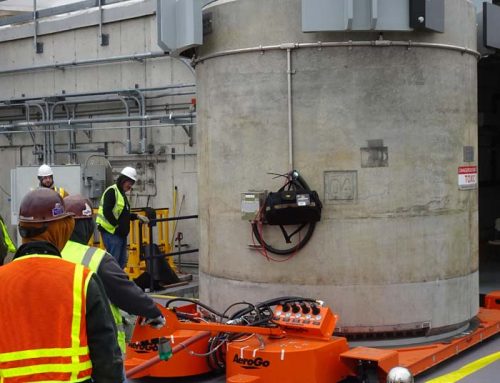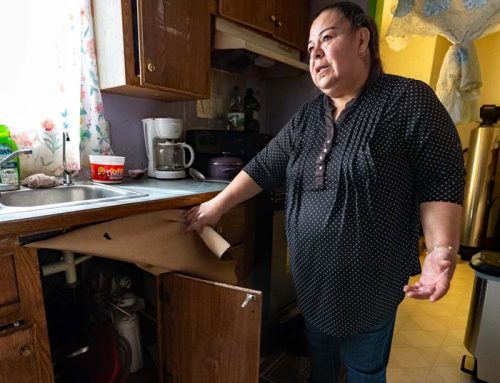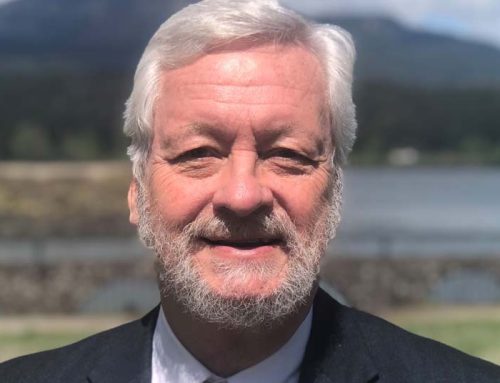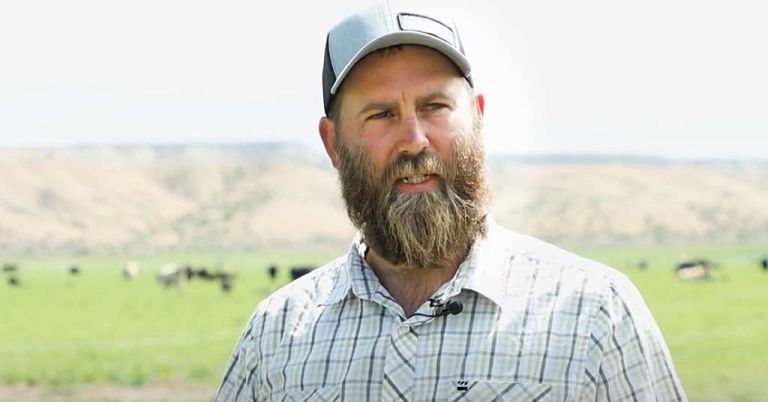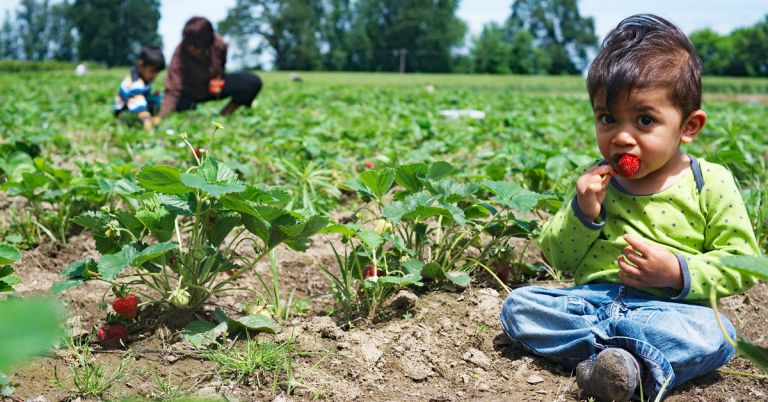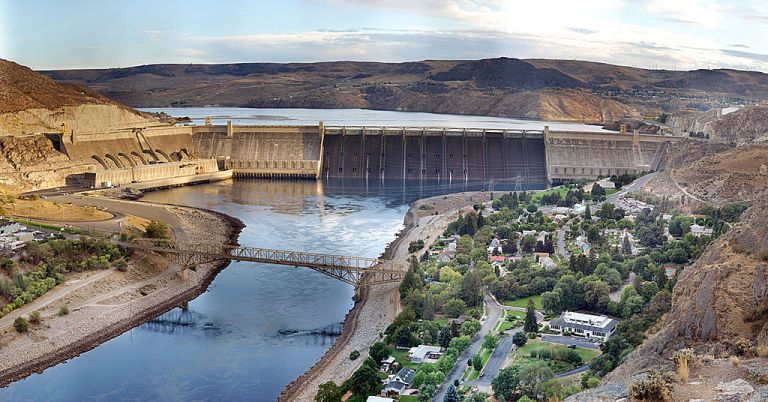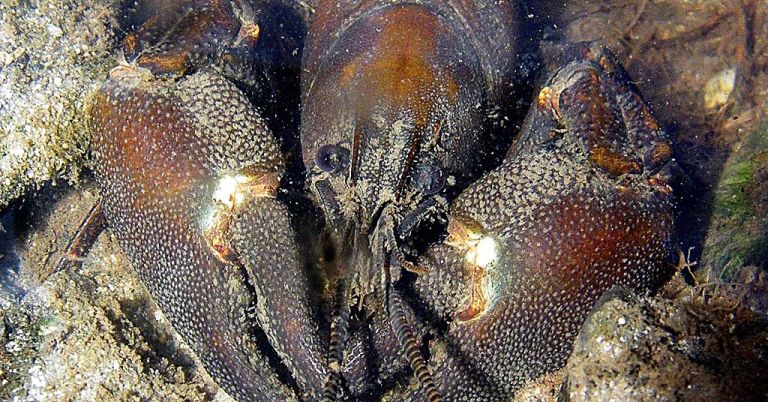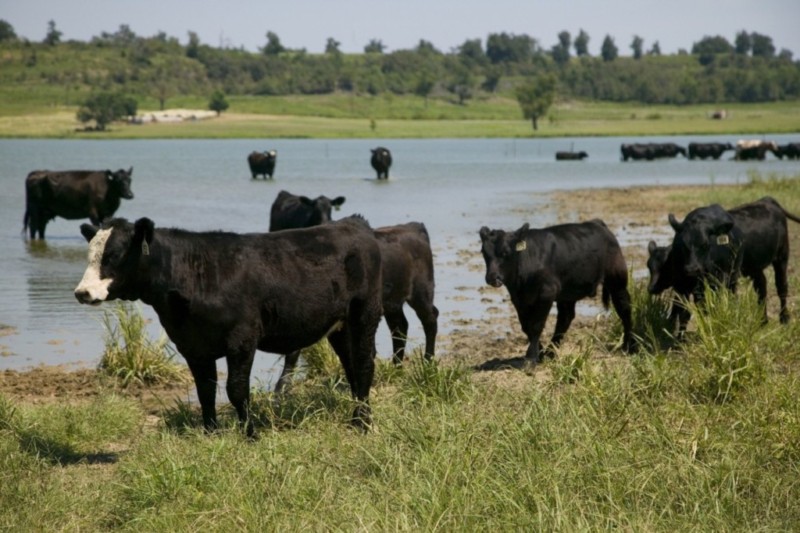
Photo by K-State Research and Extension Center
By Dac Collins. Feb. 6, 2020. The Trump Administration has removed federal protections for millions of miles of the nation’s streams, wetlands and smaller water bodies. Trump’s Navigable Waters Protection rule, which was signed into law on Jan. 23, scales back which waterways qualify for federal protection against pollution and development. It undercuts and replaces the Waters Of The United States (WOTUS) rule that was implemented during the Obama Administration, and it represents the most significant rollback of the Clean Water Act since it was implemented in 1972.
Also known as the Clean Water Rule, WOTUS broadened the definition of federally protected waterways to include not only larger water bodies such as lakes and rivers, but also ephemeral streams, wetlands and groundwater sources. Trump’s newly revised rule, by contrast, narrows that definition to exclude ephemeral streams — those that flow for only part of the year and are dependent on rainfall and/or snowmelt. It also excludes waste treatment systems, certain wetlands, groundwater and farm watering ponds.
The Administrator of the Environmental Protection Agency supports the narrower definition imposed by the new rule, even though some of the EPA’s outside scientific advisers recommended against it. Those advisers wrote Administrator Wheeler in October of 2019, saying that “aspects of the proposed rule are in conflict with established science…and the objectives of the Clean Water Act.”
The Navigable Waters Protection rule does not go into effect until 60 days after it was signed, and a coalition of 14 states has already moved to sue the administration. But this hasn’t kept Trump from crowing about the new rule, which he is touting as a big win for America’s farmers.
And a number of Republican lawmakers representing rural districts have applauded the move. That includes U.S. Rep. Greg Walden, who said the new rule is proof that Trump is “listening to the concerns of America’s farmers and ranchers.”
So how do farmers and ranchers in the Columbia River Basin really feel about Trump’s Navigable Waters Protection rule?
It depends on who you ask.
Ken Polehn runs Polehn Farms, a third-generation family farm located just outside of The Dalles, Oregon. They grow a variety of cherries, pears and table grapes using water diverted from the Columbia River. And although the Trump Administration’s revised rule does not affect the Columbia’s status as a federally protected waterway, Polehn believes the narrower definitions imposed by the rule will benefit farmers throughout the Basin.
“I do believe it will be a benefit to agriculture in our region, and to farmers in particular,” says Polehn, who also serves as President of the Wasco County Farm Bureau. As an example, he points to some of his neighbors who raise cattle and have traditionally utilized ponds that catch runoff to water their stock. Because these fall under the category of “farm watering ponds”, they are no longer subject to federal oversight under the revised rule. Polehn says this is a good thing, since many in the local agricultural community have long complained about what they see as over-regulation by the federal government.
“I think it’s a good thing we backed off a little bit on the regulations, so we can have a system that we can all live with,” he says.
Travel roughly 20 miles west of Polehn Farms and you’ll find another farmer who diverts water from the Columbia to grow crops. He also has an entirely different perspective on the Navigable Waters Protection rule.
“I guess I’m a little offended by the rollback,” says Brian McCormick of Idiot’s Grace Farm, an organic farm and vineyard in Mosier that specializes in wine grapes and grows a variety of other vegetables in their small-scale market garden.
McCormick talks about his responsibility to “farm appropriately”. And in the dry foothills of Mosier, which receive approximately 21 inches of rain a year (or 17 inches less than the national average), this responsibility translates to using water sparingly and taking every precaution to keep water sources clean.
“I don’t see policy makers as the enemy, and so I think good policy and good regulation is useful,” he says.
“There are certainly bad policies,” McCormick continues, “and I could just as soon be on the other side and be angry that I’m not allowed to use water from my own pond for irrigation, for example. But I don’t think farmers should get to do their thing no matter what.”
“I mean, farmers have a lot of uncertainty in their lives. But that doesn’t mean we have to roll back water protections.”
Meanwhile, there are farmers like Paulette Lefever Holbrook, who operates a dry-land farm near Goldendale, Washington. She raises lambs and hogs, along with wild plums and other garden produce, and while she disagrees with the Trump Administration’s recent move to roll back federal water protections, she also feels that federal regulators can be overzealous and overly restrictive at times.
Referring to the new rule that was signed into law on Jan. 23, she says, “I’m really nervous, because water quality is so important to me. My nervousness is that when we are taking away protections and relaxing the rules for what we can put in our streams…I think we’ve got a problem.”
Holbrook says she is primarily concerned about the health of groundwater sources and local aquifers, which she relies on to water her livestock and gardens. But speaking to her own experience dealing with federal regulators, she says, “I’ve seen good regulators and I’ve seen bad regulators.”
“Personally, when it comes to government regulations, I think it is hard to expect everybody to have the moral compass to do the right thing. But when it comes to government oversight, I have seen too many government people that are too zealous, and that might not have the balance and the understanding of what the farmer is going through.”
In this sense, Holbrook is like a lot of the other farmers and ranchers in the Columbia River Basin. She is wary of government regulations that make an already difficult way of life even harder…but she acknowledges the critical importance of clean water, and believes that someone (or some entity) has to ensure that we are doing everything in our power to protect our most important resource.
Like Polehn says: “Agriculture believes in clean water. We need it to produce healthy crops. I mean, we’re probably the best conservationists out there because it’s our livelihood.”


